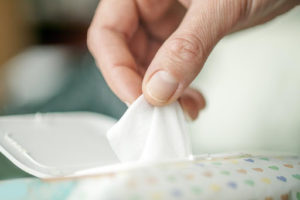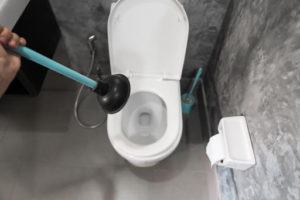
About two months ago, I had a conversation with my plumber. It went something like this:
Me- “What do you get the most service calls on?”
Plumber- “Plugged up sewer pipes.”
Me- “Really, do people flush that many toys down the drain?
Plumber- “No, believe it or not, they are flushing wet wipes down the drain.”
Me- “Wet wipes? Seriously?”
Plumber- “The packaging on some of them says that they are flushable. That is totally bogus!”
So today, I want to get to the bottom of flushable wet wipes. (Sorry, pun intended.)
Flushable Wet Wipes Cause Clogs
Soft enough?
About two years ago, I took a trip down to Cozumel. Beautiful beaches, scuba diving, and a nice resort hotel. I couldn’t ask for more. Then I got the American briefing on toilets—no toilet paper allowed. At first, I thought they were joking, but no, we were not allowed to flush our toilet paper.
This was my first experience with binning toilet paper, rather than flushing it. In my mind, I was thinking, doesn’t toilet paper dissolve in water? So why can’t their sewage system handle it there? And seriously, this is too nice of a resort to make me do that!
Well, I don’t know all the answers. But what I now know, is that their sewer systems weren’t designed to flush the soft paper products like we’ve grown accustomed to in the U.S.
Likewise, our sewer systems here in the U.S. were not designed to handle wet wipes. While manufacturers claim that their products are now flushable, they don’t appear to dissolve nearly as well as regular toilet paper.
Unfortunately, there is a growing trend among Utahn’s of all ages and genders to switch from using common TP to using these wipes. On the whole, they may feel better, but believe me, they cause a lot of problems.
Problems with flushable wipes:
While in theory, flushable wipes make sense. They’re soft, moist, sometimes pleasantly scented, and supposedly break down like common toilet paper. If however, they did break down fast enough, then sewer districts would not be considering lawsuits against the companies that make these wipes. Yep, that’s right. Our government entities, responsible for cleaning up our crap, are throwing the towelette back at these companies.
Apparently, the large, and expensive grinders (think hundreds of thousands, if not millions of dollars) used to macerate our flushables, are getting damaged almost monthly because of wipes. A piece of machinery that would only need servicing every year or two, is now needing to be replaced every few months!
It’s not just them that struggle, but it’s our sewer pipes as well. If normal toilet paper or refuse gets stuck in a pipe, the water will usually break it up quickly and send it on its way. Since wipes take a lot longer to break down, any little hang up will create a sudden buildup, until eventually, the plumber needs to get involved.
By the time a clogged sewer is recognized, well, nobody is happy.
What to do?
The simple and most obvious remedy, is to avoid flushing wipes down the toilet. If you simply must have that moist towelette to clean yourself, take a lesson from our neighbors down south, and use a waste bin next to your toilet.
I know that if you’re not used to binning your dirty paper products, this can seem a bit disgusting, but surprisingly enough, this is practiced in many parts of the developed world.
Plumbers and sewage workers will thank you. Frankly, you’ll thank yourself also if it keeps your drains from backing up on you.
Call Us: 801-653-1291